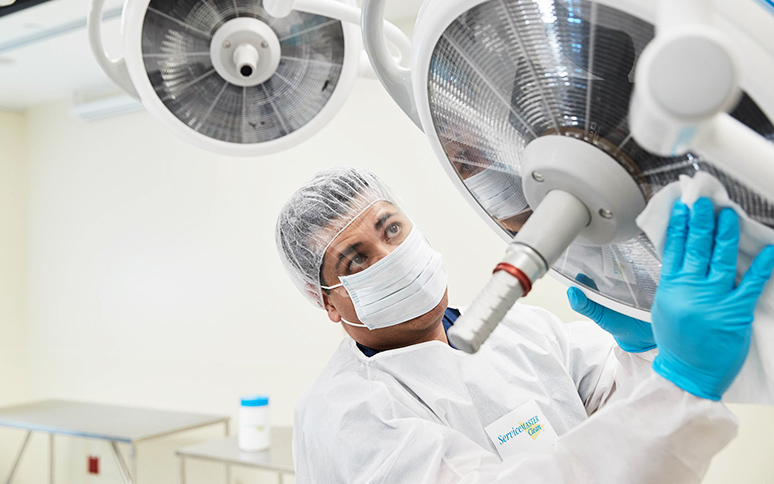Bloodborne Pathogens: What to Do If You Are Exposed to Bloodborne Pathogens
Healthcare facilities try their hardest to avoid the spread of bloodborne pathogens. Unfortunately, accidents still happen. According to the National Institute for Occupational Safety and Health (NIOSH), an estimated 600,000 to 800,000 needlestick and other percutaneous injuries occur nationally every year. At such a high number, it's crucial that your staff knows exactly what to do if such an injury occurs, and which protocols to follow if they've been exposed to bloodborne pathogens. Use these tips from ServiceMaster Clean to keep everyone on your team safe.
What to Do If You've Been Exposed to Bloodborne Pathogens
If you think you've been exposed to a bloodborne pathogen, you must act immediately. Take the following steps to keep yourself safe following exposure to bloodborne pathogens:
Clean the Area
Use these guidelines to determine how you should clean the area, depending on the way you came into contact with the bloodborne pathogens:
- If a used needlestick has pierced you, wash the cuts, injuries, and surrounding skin vigorously with water and antimicrobial soap.
- If blood or fluids came into contact with your skin but a needle wasn't involved, cleanse the affected area with warm water.
- If blood or bodily fluids have splashed in or around your eyes, irrigate with clean water, saline, or sterile irrigants for at least 20 minutes.
- If blood or bodily fluids have splashed around your mouth or nose, flush the area with water.
Report the Incident
Tell your supervisor immediately that you've come into contact with a bloodborne pathogen. The Occupational Safety and Health Administration (OSHA) requires that employers have a bloodborne pathogens exposure control plan in place with steps to follow if an incident arises that can help you identify additional steps to take. Emergency medical services (EMS) must also be alerted for efficient and thorough follow-up care.
Record the Incident
After medical care is provided to you, make sure to document the incident. As you write down what happened, you should include:
- The date
- The time
- The circumstances surrounding the accident
- Information on the follow-up care you received after the exposure occurred
- Depending on your place of work, your employer may also require additional information.
Take a Bloodborne Pathogens Test
Bloodborne pathogens include serious diseases like HIV, hepatitis B, and hepatitis C, which can cause life-threatening symptoms if left untreated. Once exposed to any of these illnesses, it's very important to take the appropriate bloodborne pathogens test to determine if the exposure resulted in contraction of the illness.
What to Do After You've Received Care
Remember that preventing bloodborne pathogens is much easier than treating these critical illnesses. Besides educating your healthcare facility on bloodborne pathogen awareness and learning how to keep high traffic areas safe from disease, we recommend contacting ServiceMaster Clean to enlist our healthcare janitorial services. With over 60 years of experience, we're experts at cleaning, sanitizing, and disinfecting healthcare facilities to control the spread of infection and lower the risk of exposure for both staff and patients.








